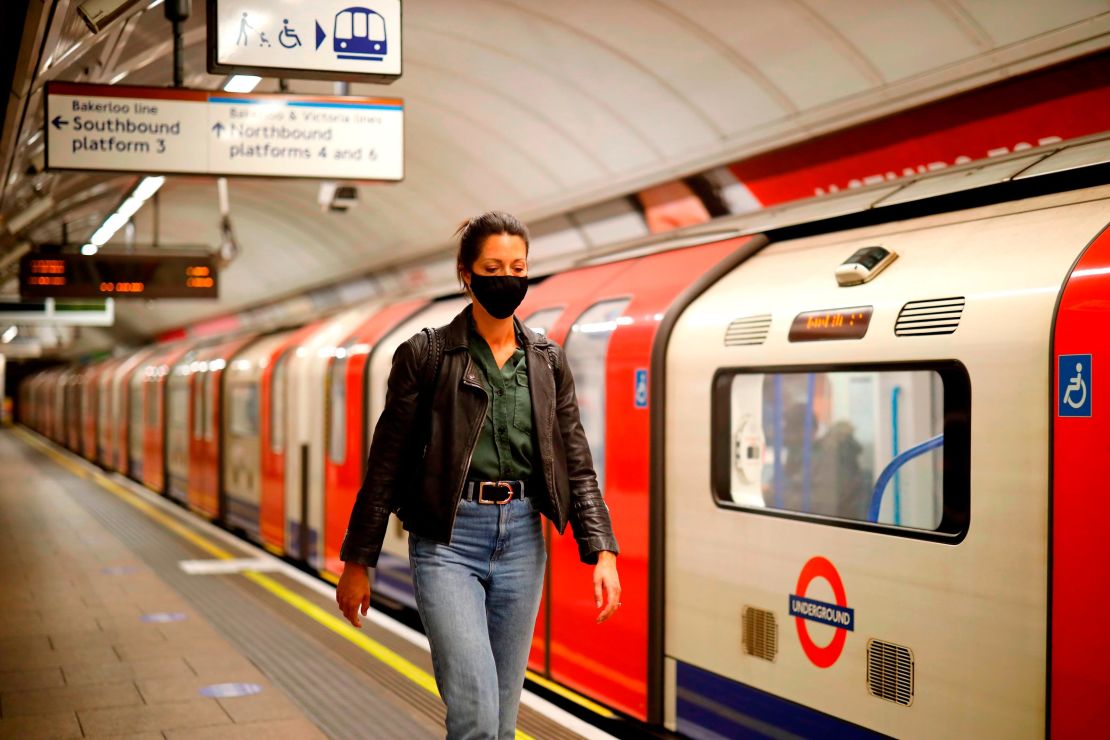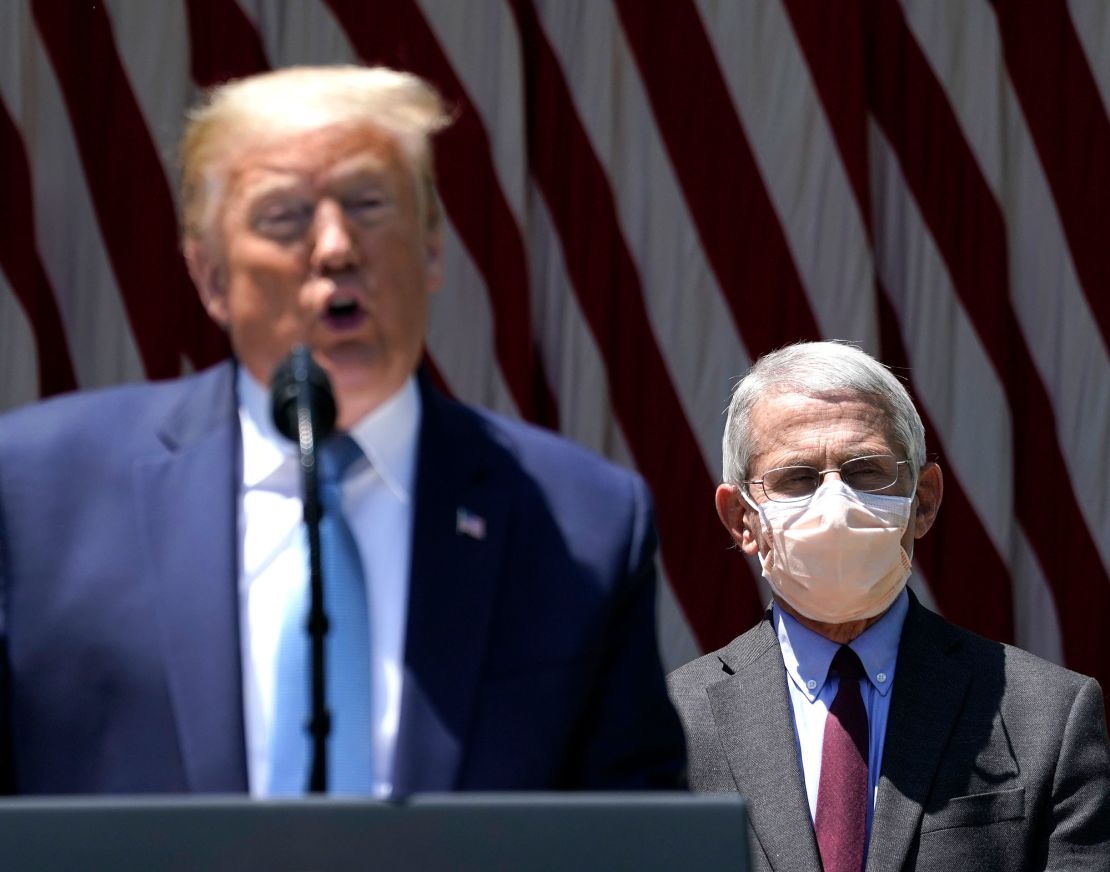“Can’t hug my nan but I can go on Nemesis Inferno with her,” wrote one Twitter user regarding his grandmother and a popular UK rollercoaster.
This zinger on the state of England’s coronavirus lockdown was repeated across social media this week as people said they were “confused” by the government’s latest easing of restrictions.
It means that relatives still can’t spend time inside others’ homes, but outdoor attractions, retail stores and places of worship can reopen in England from next week.
Meanwhile, the UK has recorded more than 50,000 coronavirus deaths, second only to the United States.
There is a wide discrepancy in approaches to the coronavirus by the world’s political leaders, some countries are lifting lockdowns as Covid-19 deaths continue to rise, and global health agencies are backtracking on their guidance. It’s hardly surprising that the situation might seem unclear.

Many English schools won’t return until September but students may be able to visit restaurants, hair salons and even pubs – if they are over 18 years old – much earlier. UK Business Secretary Alok Sharma said this week that the government’s ambition is to reopen these establishments from July 4.
It was also announced that single-adult households can form a “support bubble” with just one other household, but this does not include those with chronic conditions who are “shielding.”
Annabel James, co-founder of online community Age Space, said hundreds of people with elderly relatives had told her organization they were confused. “The rules have changed really fast in lots of different aspects of life,” she told CNN. “And I think for lots of people it’s trying to work out which rules relate to them in which circumstance, and how to interpret them. It’s very difficult, I think, for people to interpret.”

James said there were concerns over people returning to school or work while forming a bubble with a relative, and many were “actually being actively more cautious in their interpretation of the guidance.”
Vague government messages, plus the controversy over whether government adviser Dominic Cummings broke the lockdown rules, have seen some in the UK err on the side of caution while others take a much more relaxed approach.
Large groups have gathered in parks and at parties, many are not wearing masks (which only become mandatory on public transport from Monday), and thousands attended protests where social distancing is a challenge.
Public health experts warned last week that the UK government was moving too fast, too soon, by lifting so many measures, risking a second wave and the imposition of full lockdown.
UK Prime Minister Boris Johnson said he knew the changes were only incremental and it was “inevitable” people would find “apparent anomalies.”
He said the government had to move “slower than we would have liked in some areas,” including reopening schools, because the rate of infection was not yet low enough.
“We will continue to remain cautious and measure the effect of the changes that we make. And as I’ve always said, we won’t hesitate to apply the brakes if that is what the situation requires,” Johnson added.
Spikes across US
In the US, 19 states are seeing an upward trend in new coronavirus cases as restrictions lift and more Americans head out of their homes.
Florida has one of the largest spikes with the number of new cases reported each day increasing by an average of roughly 46% last week as much of the state reopened. The past few weeks have seen wider spread in inland states, including Arkansas, Texas and Arizona, which has told its hospitals to activate emergency plans. In Utah, state Rep. Suzanne Harrison told people to avoid close contact with others or wear masks, calling a recent spike of cases “very concerning (and) approaching exponential.”
The US has more than 2 million cases and 113,000 deaths, by far the most of any country in the world, amid growing concerns over reopening, increasing socializing and widespread protests over police brutality and racial inequality.
Julia Marcus, an infectious disease epidemiologist at Harvard Medical School, told CNN Chief Medical Correspondent Dr. Sanjay Gupta’s podcast that everyone had to navigate questions of how to behave and make “decisions based on the risk-benefit calculation.” She said public health guidelines should help people with risk assessment, with the protests also tackling a public health crisis.
Mienah Sharif, a postdoctoral researcher at the Center for the Study of Racism, Social Justice and Health at UCLA, told Gupta that official advice was often “problematic and even irrelevant” for some communities. Fewer than one in five black workers and one in six Latino workers report being given the option to work remotely, she said, and some have less access to green space or are put off by the presence of law enforcement.
WHO rows back
Advice from top scientists and global public health bodies is in many cases only adding to the uncertainty.
The WHO sowed widespread doubt by flip-flopping in its stance on asymptomatic transmission this week. A WHO official on Tuesday rowed back an earlier comment that transmission of Covid-19 by people without symptoms is “very rare,” clarifying that asymptomatic spread is actually a “major unknown.” Maria Van Kerkhove, WHO’s technical lead for coronavirus response, called it a “misunderstanding.”
Dr. Anthony Fauci, the top infectious diseases expert in the United States, then said it “was not correct” to describe asymptomatic spread of the coronavirus as rare.
The episode attracted widespread criticism over the WHO’s public health messaging, as Sunday marked the most Covid-19 cases reported to the agency in a single day during the pandemic.
In April, a study published in medical journal The Lancet warned that lockdowns across the globe should not be completely lifted until a vaccine for the disease is found. The financial toll of the pandemic has been such, however, that authorities all around the world have come under pressure to reopen their economies.
And, as people across the world consider getting back to their normal lives, this is a dangerous time for confusion.

